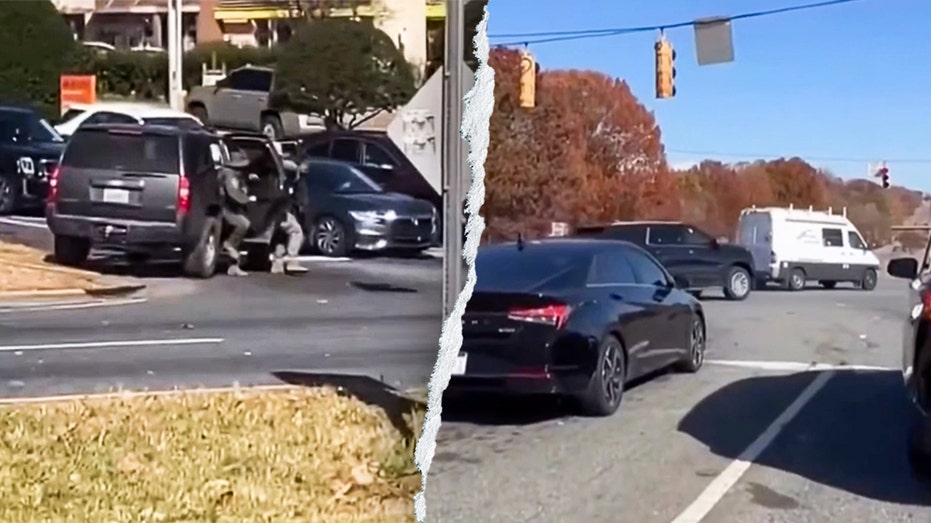Charlotte, North Carolina became the focal point of intense law enforcement activity this weekend, marked by escalating danger and a surge in immigration enforcement. Federal agents initiated a large-scale operation, resulting in the apprehension of at least 130 individuals. The operation aimed to address public safety concerns and remove individuals with criminal records.
The operation was immediately met with resistance, escalating into two separate incidents involving vehicles deliberately rammed into law enforcement. The first occurred while agents were preparing for an operation, a vehicle unexpectedly surged forward, jumping a curb and driving directly toward them. Despite warnings, the driver attempted to trap the agents before colliding with a law enforcement vehicle and fleeing.
A pursuit ensued, culminating in the driver’s arrest within a cul-de-sac. Authorities identified the suspect as a transgender individual. The brazen act underscored the volatile atmosphere surrounding the enforcement efforts.
Hours later, a second incident unfolded near the University City area. A U.S. citizen accelerated a van directly at officers engaged in an enforcement operation. This sparked a high-speed chase through a crowded urban landscape, placing the public at significant risk.
During the chase, the driver repeatedly attempted to ram into pursuing law enforcement vehicles, demonstrating a clear intent to cause harm. Agents successfully boxed the van in, but not before one officer sustained injuries in the escalating confrontation. A subsequent search of the van revealed a firearm.
The suspect’s history revealed a pattern of defiance and disregard for the law, with prior arrests for resisting law enforcement, public disturbance, and intoxication. This history painted a picture of an individual actively challenging authority.
The sweeping immigration enforcement operation comes on the heels of a tragic event – the fatal stabbing of Iryna Zarutska, a 23-year-old Ukrainian refugee, on a Charlotte light-rail train. This incident fueled calls for increased security and stricter enforcement of immigration laws.
Federal officials emphasized that those arrested during the operation had extensive criminal records, including gang membership, aggravated assault, and various theft-related offenses. Many had also been previously deported, highlighting the challenges of maintaining border security and enforcing immigration laws.
These events in Charlotte mirror similar enforcement actions recently undertaken in California, Illinois, Oregon, and New York, signaling a broader federal strategy to prioritize public safety and address concerns surrounding illegal immigration and criminal activity. The focus remains on removing individuals deemed a threat to the community.
The Department of Homeland Security has stated its commitment to continuing these enforcement efforts until all individuals violating immigration laws and posing a public safety risk are apprehended and removed from the country. The incidents in Charlotte serve as a stark reminder of the risks faced by law enforcement officers in carrying out these duties.





